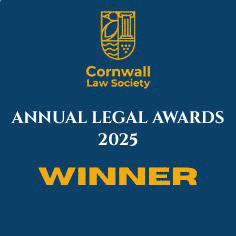Landlord & Tenant

Informed decision-making
We can advise you of all areas concerning landlord and tenant, from drafting a residential lease, to advising you on a dispute. This area is constantly changing and subject to a vast array of case law and statute. We can explain to you the options clearly enabling you to make an informed decision.
An easy source of income?
Renting out a property may appear to be an easy source of income. However, if you do not put robust agreements in place between yourself and your tenant(s), it is possible that any disagreements can become extremely difficult to resolve, causing a great deal of stress, as well as taking up a lot of your time.
Preventing potential problems
Prevention is better than cure and the best way to avoid this type of situation is to take the right legal advice to begin with. Before searching for a tenant, we can help you to decided what the terms of the tenancy will be and draw up a tenancy agreement or lease, a document which forms a contract between you and your tenant.
Clear, cool-headed advice
Should you find yourself embroiled in a dispute with your tenant, or with your landlord if you rent a property yourself, we can provide clear, cool-headed advice to help you to resolve the problem.
NEW! Renters Rights Bill
A major new piece of legislation is being introduced in England which aims to improve the rental system for both tenants and landlords. As of June 2025, it is currently going through Parliament. The key changes which it will bring are:
Abolition of “No fault” evictions. Landlords will need to have a valid reason such as rent arrears, breaking the terms of the agreement, or the sale of the property in order to evict tenants. This is intended to bring security of tenure for tenants.
More responsibility for landlords to maintain property. The new legislation proposes stricter enforcement of health and safety standards in rental properties and penalties for landlords who fail to meet them.
Strengthen and simplify section 8 evictions. This is the legal process in England and Wales that a landlord uses to evict a tenant when the tenant has broken the terms of the tenancy agreement.
All tenancies to become periodic. This means that there will no longer be fixed term tenancies but that they will become rolling, month to month. Tenants will have the right to leave with 2 months’ written notice.
Limiting rent increases. Rent will only be able to be increased annually. Tenants will also have the power to challenge unfair increases through a tribunal process.
New Ombudsman for all private landlords. All private landlords, including those who let direct rather than via an agent will be required to join the new ombudsman. The ombudsman will enable tenants to resolve issues without going to court.
Pets in rentals. Tenants will have a legal right to have pets in their rented property, landlords must consider the request and can’t unreasonably refuse although they can require pet insurance to cover any potential damage.
Get in touch
We add new blogs regularly and try to highlight topical issues across the different areas of law we cover.






